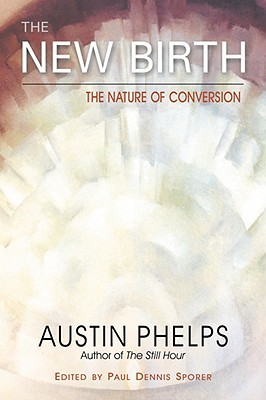
- We will send in 10–14 business days.
- Author: Austin Phelps
- Publisher: Anza Publishing
- Year: 2008
- ISBN-10: 1932490582
- ISBN-13: 9781932490589
- Format: 15.2 x 22.9 x 0.8 cm, minkšti viršeliai
- Language: English
- SAVE -10% with code: EXTRA
Reviews
Description
This highly rewarding work goes back to a time when theological discussion was not considered "heavy." It contains an inspirational treatment of the subject of conversion, and sees faith as creating fresh possibilities that can lead to great accomplishments. In modest, inspiring, but still powerful language, it puts forward many important ideas using a sensible, logical plan that helps the individual interact with God in his new-found spiritual life. As the title suggests, The New Birth views the concept of conversion as a momentous, singular event. Austin Phelps discusses the subject in relation to the subjects of guilt, self-respect, ritual, laws, mysticism, regeneration, the power of truth, the role of the preacher, and personal responsibility. Phelps strikes just the right balance of advice, admonition, dogma and social commentary. His writing is almost poetic, yet it is also steady, careful, straightforward and compelling. Although Phelps saw great value in the spreading of ideas through preaching, he perceived this form of address as more than a lecture; indeed, it was a kind of conversation, where people could stop to think, ask questions, and proceed to learn further. The author understood that the profundities of Christianity could not be laid out in a simple sermon; they need to be ex-pounded upon with a great diligence and earnestness, in direct language that does not trivialize, but still maintains the purity of the fundamental concept. Austin Phelps' books are, generally speaking, devotional, homiletical, and theological in character. The Still Hour was published in 1860 in both America and Britain, and was extremely popular, selling some 200,000 copies. He also published a number of books about the difficult and varied tasks of a minister: The Theory of Preaching; Lectures on Homiletics (1881); Men and Books; or Studies in Homiletics (1882); My Study and Other Essays (1886) Rhetoric; Its Theory and Practice (1895). Paul Dennis Sporer has edited other significant books that deal with the complex dynamics of personal growth and transformation, such as The Missionary, by Samuel Mazzuchelli, Half a Century, by Jane Swisshelm, and Born Three Times by Thomas L. Johnson.
EXTRA 10 % discount with code: EXTRA
The promotion ends in 23d.10:59:41
The discount code is valid when purchasing from 10 €. Discounts do not stack.
- Author: Austin Phelps
- Publisher: Anza Publishing
- Year: 2008
- ISBN-10: 1932490582
- ISBN-13: 9781932490589
- Format: 15.2 x 22.9 x 0.8 cm, minkšti viršeliai
- Language: English English
This highly rewarding work goes back to a time when theological discussion was not considered "heavy." It contains an inspirational treatment of the subject of conversion, and sees faith as creating fresh possibilities that can lead to great accomplishments. In modest, inspiring, but still powerful language, it puts forward many important ideas using a sensible, logical plan that helps the individual interact with God in his new-found spiritual life. As the title suggests, The New Birth views the concept of conversion as a momentous, singular event. Austin Phelps discusses the subject in relation to the subjects of guilt, self-respect, ritual, laws, mysticism, regeneration, the power of truth, the role of the preacher, and personal responsibility. Phelps strikes just the right balance of advice, admonition, dogma and social commentary. His writing is almost poetic, yet it is also steady, careful, straightforward and compelling. Although Phelps saw great value in the spreading of ideas through preaching, he perceived this form of address as more than a lecture; indeed, it was a kind of conversation, where people could stop to think, ask questions, and proceed to learn further. The author understood that the profundities of Christianity could not be laid out in a simple sermon; they need to be ex-pounded upon with a great diligence and earnestness, in direct language that does not trivialize, but still maintains the purity of the fundamental concept. Austin Phelps' books are, generally speaking, devotional, homiletical, and theological in character. The Still Hour was published in 1860 in both America and Britain, and was extremely popular, selling some 200,000 copies. He also published a number of books about the difficult and varied tasks of a minister: The Theory of Preaching; Lectures on Homiletics (1881); Men and Books; or Studies in Homiletics (1882); My Study and Other Essays (1886) Rhetoric; Its Theory and Practice (1895). Paul Dennis Sporer has edited other significant books that deal with the complex dynamics of personal growth and transformation, such as The Missionary, by Samuel Mazzuchelli, Half a Century, by Jane Swisshelm, and Born Three Times by Thomas L. Johnson.


Reviews